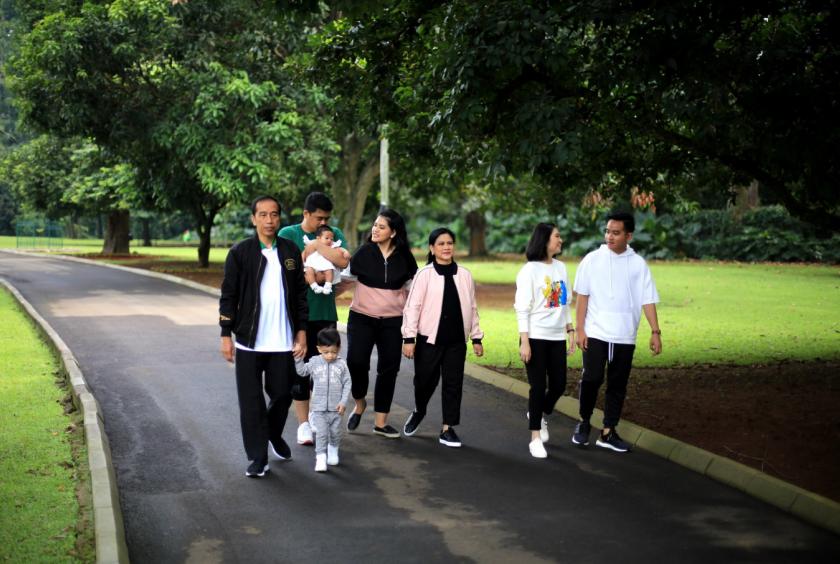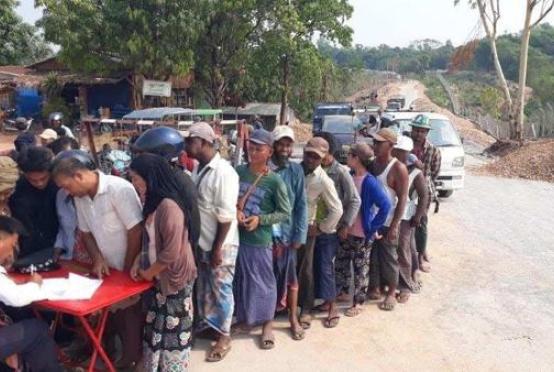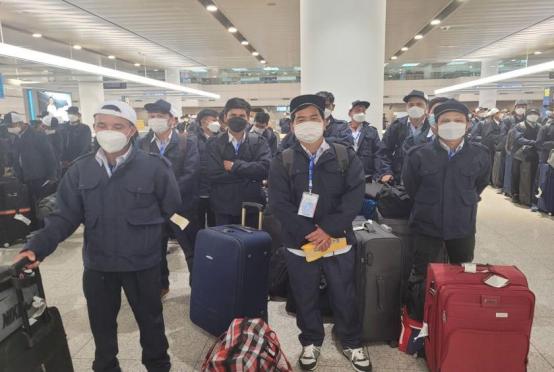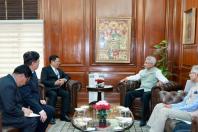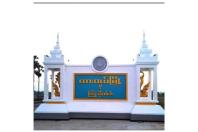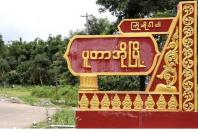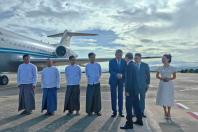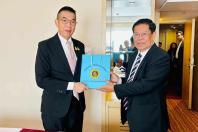From The Jakatar Post
As his eldest son and son-in-law push ahead with their plans to run in mayoral races, President Joko “Jokowi” Widodo has asserted that the decision of his family members to enter politics has nothing to do with establishing a political dynasty under his name.
His intention to join the race — coupled with Jokowi’s son-in-law Bobby Nasution’s decision to run in the Medan mayoral election in North Sumatra next year — has sparked rumors the First Family is seeking to establish yet another political dynasty in the country.
Jokowi responded to the speculation on Thursday, saying he had no hand in Gibran’s decision to run for Surakarta’s top post.
“[Elections] are a competition. They could win or lose. It's up to the people to decide. Everyone has the right to vote or be voted for,” Jokowi said on Thursday in Jakarta.
“What if the people don’t vote for them?” Jokowi went on to say, “This a competition, not an appointment. It’s different.”
Gibran, who had previously approached PDI-P chairwoman Megawati Soekarnoputri, registered with the party’s Central Java chapter in Semarang in attempt to get a ticket for the mayoral race.
The PDI-P central board will later decide which candidate it will nominate.
Gibran arrived at the PDI-P Central Java office with around a hundred of his supporters. They wore t-shirts with caricatures of various Indonesian heroes like Diponegoro, Pattimura, Sisingamangaraja and General Sudirman.
"I have officially registered as a potential candidate for [Surakarta] mayor for the 2020 to 2025 term. I am grateful for your support. I owe this to you and will pay it back with my policies, which will improve the welfare of the Solo people," Gibran said to his supporters.
Gibran sought to enter the race via the PDI-P Central Java branch after being rejected by the PDI-P Surakarta branch, which gave its ticket to Achmad Purnomo and Teguh Prakosa, the current Surakarta deputy major and Surakarta Legislative Council (DPRD) chairman.
Gibran’s decision to register with the PDI-P — Jokowi’s own political vehicle — also came roughly a week after Bobby, the husband of the President’s daughter Kahiyang Ayu, submitted his Medan mayoral candidate nomination forms to the PDI-P's North Sumatra branch on Dec. 3.
Central Java PDI-P chairman Bambang Wuryanto gave an assurance the selection process for the party’s mayoral candidates would be fair. “The selection process will be equal. All are treated the same. We will not give Gibran a red carpet," Bambang said at the House of Representatives’ building in Senayan, Central Jakarta.
He added that Megawati would have the final say on whose name would be on the ticket as “special cases must be decided by the chairwoman."
"What is a special case? For me it is one that will have an impact on a national scale. Will a decision on Gibran’s candidacy have a national impact? Well, he’s the President's son after all,” Bambang said. (mrc)
It appears that for many, politics has become a family business.
At the national level, political dynasties are alive and well. Megawati Soekarnoputri, the daughter of Sukarno and now matriarch of the Indonesian Democratic Party of Struggle (PDI-P), is preparing her own daughter, Puan Maharani, to take up the mantle. Her rival, former president Susilo Bambang Yudhoyono, is grooming his eldest son, Agus Harimurti Yudhoyono, as a national leader.
Political dynasties are by no means uniquely Indonesian. The United States has the Bushes, the Clintons and the Kennedys. In neighboring countries such as Malaysia, the Philippines, Thailand and Singapore, scions of political dynasties are still making headlines in the media.
The rise of a political family is not necessarily bad and could even be considered something natural since families of popular politicians often get the same amount of public exposure and are therefore bestowed with the so-called “brand name advantage” to prevail in elections. But we have reasons to be concerned about the emergence of new political dynasties at the regional level.
The results of the 2019 general election have shown that dynastic politics remains potent in several regions, with spouses and relatives of local leaders predicted to win legislative seats.
In West Sumatra, the wives of two regional heads secured seats in the House of Representatives, while one obtained a seat in the provincial legislative council. They are Nevi Zuairina, the wife of West Sumatra Governor Irwan Prayitno, Lisda Hendrajoni, the wife of South Pesisir Regent Hendrajoni and Yunisra Syahiran, the wife of West Pasaman Regent Syahiran.
In East Nusa Tenggara, the wives of three regional heads also won legislative seats. They are Ratu Wulla, the wife of Southwest Sumba Regent Markus Dairo Talu and Kristiana Muki, the wife of North Central Timor Regent Raymundus Fernandes, both obtained House seats, while Hilda Manafe, the wife of Kupang Mayor Jefri Riwu Kore, obtained a seat in the Regional Representatives Council.
Analysts have said these legislative candidates won the election on the back of their spouses’ popularity and grassroots network. There is also suspicion that the influence of their spouses or relatives has enabled them to appear on the top of the candidate list on the ballot. This is bad for democracy as it would close the possibility of a better candidate prevailing. It is even worse if the spouses were elected legislative members of the same city or regency where their husbands or wives are mayors or regents.
In Banten, we have seen how a political family with a strong grip on the local political institutions could easily be drawn to corruption. Ratu Atut Chosiyah, the leader of a major political clan in the province, was convicted of graft along with her businessman brother, Tubagus Chaeri Wardana.
The rise of many new politicians gives us hope for a wider recruitment base beyond the dynasties. But in a bid to maintain control over resources, political parties favor stronger figures, including those from dynasties, regardless of their track records.

